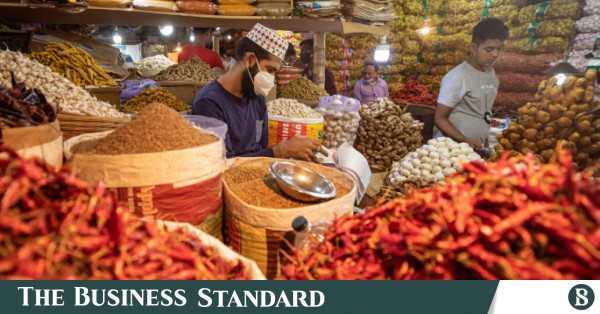CAB vice president says it is difficult to control prices unless there is competition in market
Highlights:
- Traders say tax reduction helps large importers only
- Sugar’s wholesale price now at Tk134 per kg, up from Tk132 a week ago
- Wholesale chickpea prices jumped to Tk97 from Tk87 per kg
- State Minister for Commerce says there is enough rice in stock
Despite the government’s efforts to reduce import taxes on certain commodities before Ramadan to stabilise prices, some essentials widely used during the month of fasting have experienced abnormal price increases in a week.
Traders criticised the government’s price control measures, stating that the authorities ignored the plight of ordinary traders amid the dollar crisis, preventing them from importing goods.
Therefore, a limited number of importers took the opportunity to import these essentials for Ramadan, they said. Now, the reduction of customs duty on imports is like giving additional benefits to big importers.
On 8 February, the government reduced rice import duty and tax from 63% to 15%, with a 20% cut in supplementary duty. Additionally, VAT on refined and crude soybean and palm oil was reduced from 15% to 10%.
The fixed duty on sugar imports was lowered from Tk1,500 to Tk1,000 per tonne, and the import duty on dates was slashed from 58% to 43%.
However, sugar and edible oil prices have surged in Chattogram’s Khatunganj, the country’s largest wholesale commodity market.
Sugar’s wholesale price now stands at Tk134 per kg, up from Tk132 a week ago. Similarly, soybean oil now costs Tk161 per litre, palm oil Tk134, and super palm oil Tk137, up from their previous prices of Tk155, Tk131, and Tk134, respectively.
Nurul Alam, owner of A Zaman Enterprise, said only select importers with ties to banks managed to import products, limiting the market to 10-15 large importers.
This situation, he believes, will not ease by reducing duties and taxes but will instead grant duty exemptions to these importers, providing no benefits to consumers.
M Najer Hossain, vice president of Consumers Association of Bangladesh (CAB), said ordinary traders struggling to open letters of credit have not received support from authorities.
“The government has started to control the prices of products just before Ramadan. It is difficult to control the market unless there is full competition from import to market,” he added.
During visits to kitchen markets in Kallyanpur and Karwan Bazar on Friday, it was observed that retail prices of essential items have not decreased despite the reduction in duty.
Ali Hossain, a salesperson at Yasin General Store, said open sugar was priced at Tk140 per kg, packet sugar at Tk145, chickpeas at Tk110, and bottled soybean oil at Tk170 per litre.
Chickpea prices soar
Traders Khatunganj in Chattogram, the country’s largest wholesale commodity market, said the price of chickpeas has increased abnormally in the last one week.
They said the wholesale price of this widely used item was Tk87 per kg a week ago. On Thursday, the price stood at Tk97. Medium quality chickpeas have jumped from Tk80 to Tk91.
Similarly, the price of white peas, which was sold at Tk45 during normal times, has jumped to Tk66, they said.
Several traders of Khatunganj, seeking anonymity, voiced concerns that only a third of the chickpea demand was imported this Ramadan, with the majority of imports handled by a single businessman (Payel Traders) who is now raising prices at will.
Paritosh Mahajan, proprietor of Payel Traders denied the allegation and pointed finger at big corporate importers. “We buy 100-200 tonnes of products and immediately sell them in the market. A few organisations own most of the product.”
‘No shortage this Ramadan’
State Minister for Commerce Ahsanul Islam Titu addressed concerns raised by Khatunganj traders about market monopolisation, assuring, “We will take measures to prevent monopolies in the market.”
During a press briefing yesterday, he also urged businessmen to support the public during Ramadan.
The price of oil will be fixed in a meeting with importers and those who manufacture the product this week, said the minister.
Besides, India has agreed to supply onions and sugar, he said. “We will work to ensure uninterrupted supply of daily necessities from India and other neighbouring countries.”
He further said there is enough rice supply, with over 17 lakh tonnes in stock. “We won’t tolerate artificial food shortages or price hikes caused by dishonest traders.”




